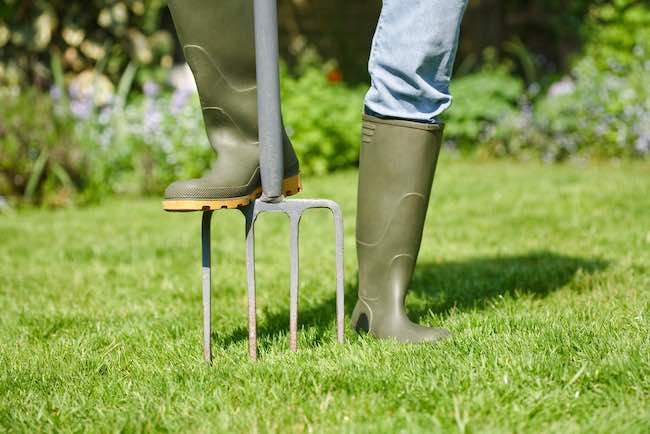Spring lawn care

Caring for your lawn in spring involves several key steps to ensure a healthy and vibrant lawn throughout the year. Here are some guidelines
- Begin Early: Start preparing your lawn in early spring. Remove any leaves, debris, and toys etc that have accumulated over the winter. This helps in preventing dead spots on the lawn where grass can’t get consistent light.
- Aeration: Aerate your lawn to create small holes in the soil. This allows water, air, and nutrients to reach the roots, and encourages deeper rooting of the grass, which is beneficial for maintaining lawn colour in the hot summer months. With a small lawn this can be carried out with a garden fork.
- Fertilising: Apply a spring lawn treatment or fertiliser, but timing is crucial. In the UK, mid-March is generally the best time for this, with some variations depending on your specific location. Make sure to do this on a dry day followed by rain or watering the area three days after the application.
- Thatch Control: Address thatching issues by lightly raking with a wire rake to remove the moss and thatch that’s built up in the sward of the grass This is important for the grass’s ability to breathe and receive sunlight.
- Reseeding Sparse Areas: Reseed any sparse areas in your lawn, ensuring that you have removed the thatch build-up and mowed the yard beforehand. Avoid seeding if there’s a risk of frost or heavy rain forecast.
- Regular Mowing: Maintain a regular mowing schedule. Don’t cut the grass too short, especially during cooler times or when heavy rainfall is expected. As temperatures rise, you can gradually lower the cut height.
- Watering: Ensure your lawn is adequately watered. This is particularly important during dry spells. However, avoid over-watering, and ensure that the grass gets a good drink without soaking it.
Weed and Moss Removal: Keep your lawn free of weeds and moss. These can compete with grass for water and nutrients, affecting the overall health of your lawn. With weeds in most lawn spot treating with a lawn weed killer is best rather than treating the whole lawn